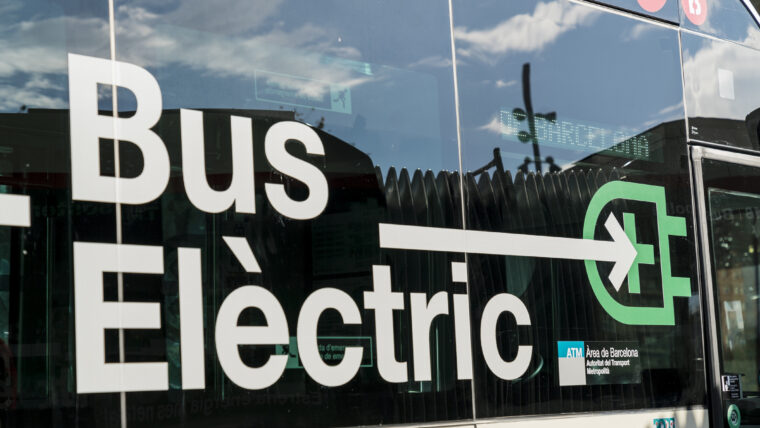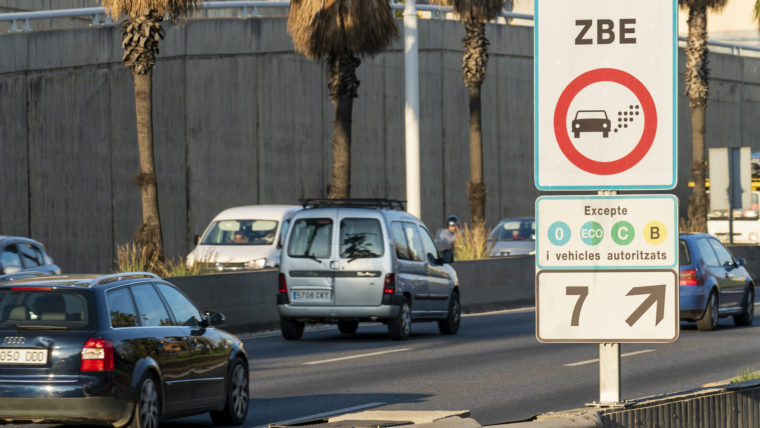Commitment to improve air quality in the city
The Deputy Mayor for Urban Planning, Ecological Transition, Urban Services and Housing, Laia Bonet, was in Brussels to show Barcelona’s commitment to improving air quality. The Deputy Mayor did so in a meeting with the European MP Javi López, a speaker in the European Parliament for the review of the directive on air quality, and François Wakenhut, head of the air quality unit at the European Commission.
While Barcelona closed out 2023 meeting the current European limits at all its air quality monitoring and forecasting stations, the city now faces the challenge of improving its air quality and aims to speed up its policies to achieve this.
The commitment is to continue the work started to renew vehicles as part of the Low Emission Zone, where today there are now more vehicles circulating with ECO ratings than with yellow B rating badges, and making the bus network wholly electric. In fact, the expectation is for vehicles running on electricity or green hydrogen to account for 25% of the whole fleet in 2024.
In addition, as part of the Urban Mobility Plan 2025-2030, the boost to sustainable mobility will continue (now representing 80% of journeys), as will the reduction of journeys made with private motor vehicles.
Commitment to climate neutrality for 2030
Barcelona presented the City Climate Agreement, which includes the Barcelona Commitment to Climate Neutrality in 2030, the roadmap for decarbonising the city. The document set out the rollout and monitoring of measures to become climate neutral, with projects in key sectors: mobility and transport, buildings and the built environment, generation of electricity, waste, green infrastructures and water.
This is the what the city is doing within the framework of the European Mission to Deliver 100 climate–neutral and smart cities by 2023. In April 2022, the European Commission chose Barcelona as one of the 100 cities to take part in this project, the idea being to pave the way for all cities with populations larger than 50,000 to be climate neutral by 2050.






